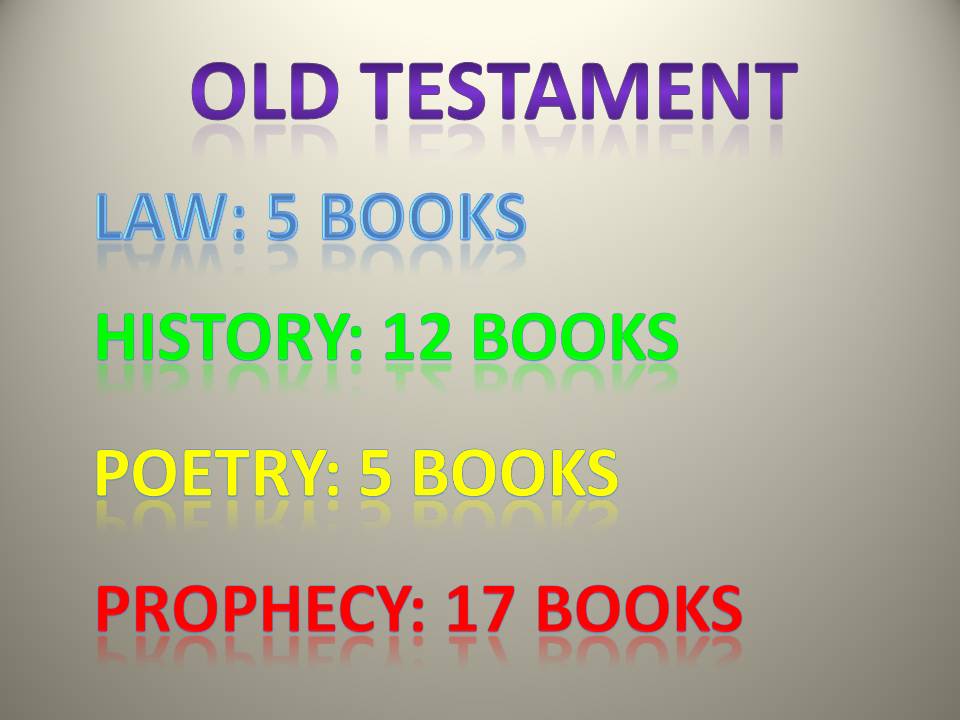DIVISIONS OF THE
OLD TESTAMENT
LAW, HISTORY, POETRY, & PROPHECY
CHAPTER 2

Every intelligent person knows that the Bible is not one continuous book, but it is made up of a number of books, differing from one another in subject matter and literary form. Some are books of history, some of prophecy, some of precept or doctrine, and some of poetry. They are also distinguished with reference to the time in which they were written, and the purposes which they were intended to serve. In order to read them intelligibly, it is necessary to take notice of all these distinctions.
The first five books (let the reader here commit their names to memory if he has not already done so) are commonly grouped under the title, The Pentateuch, one a Greek word which means a five-fold book.
Next, we have twelve historical books, containing a connected history of Israel from the death of Moses to the restoration after the Babylonian captivity. The reader should commit their names to memory. Two of these, First and Second Chronicles, repeat large portions of the history given in other books, but they also furnish much additional information.
In the middle of our Bible, next after the books last mentioned, we find five books, mostly poetry (commit their names to memory), which are placed without regard to their time of composition. In our Lord's classification of the Old Testament as "the law, the prophets, and the psalms," they are included under the latter title because the book of Psalms was the best known of the five. It is now quite common among scholars to include Job, Proverbs, and Ecclesiastes under the title, Wisdom Literature, because of the prominence given in them about wisdom and folly. These five books are grouped together because a likeness in subject matter and literary form distinguishes them from the others. It should be observed that the arrangement of the books in the Bible is the work of uninspired editors and publishers, and not of the inspired authors.
The last division of all is composed of seventeen books which are styled prophetical (commit their names to memory). These, like the preceding division, are grouped together, because of their likeness in subject matter. Some of them were written after the Babylonian exile, and some long before it. They follow one another on the pages of the Bible without regard to the order of time. Nearly every one indicates in the opening verses the time of its composition by giving the names of the kings under whom its author lived and prophesied.
This classification of the books of the Old Testament, if remembered, as it must be by all who wish to become proficient in Scripture knowledge, will enable the student at any time to readily turn to the part he wishes to read, whether law, history, poetry, or prophecy. Every part has its own peculiar value both for instruction and edification; and no part should be neglected.
Questions for Chapter 2
What are the names and number of books in the Pentateuch?
The historical group?
The poetic or wisdom group?
The prophetic division?
Home < Study Guides Chapter 3 - Original Text >
Copyright 2016-2018. Questions God. Com. All Rights Reserved.
